Revolutionizing Recruitment: The Power of AI Tools
In recent years, we have witnessed a remarkable transformation in the recruitment landscape, primarily driven by the rise of artificial intelligence (AI). As organizations strive to enhance their hiring processes, AI has emerged as a game-changer, offering innovative solutions that streamline operations and improve outcomes. The integration of AI into recruitment is not merely a trend; it represents a fundamental shift in how businesses approach talent acquisition.
By harnessing the power of AI, we can analyze vast amounts of data, identify patterns, and make informed decisions that were previously unattainable. The adoption of AI in recruitment is fueled by the increasing demand for efficiency and effectiveness in hiring. Traditional methods often involve time-consuming processes that can lead to biases and inconsistencies.
However, with AI tools, we can automate repetitive tasks, such as resume screening and interview scheduling, allowing HR professionals to focus on strategic initiatives. This shift not only enhances productivity but also positions organizations to attract top talent in a competitive market. As we embrace this technological evolution, it is essential to understand the myriad benefits that AI brings to the recruitment table.
Key Takeaways
- AI is increasingly being used in recruitment to streamline processes and improve efficiency.
- Using AI tools in recruitment can lead to benefits such as reduced bias, improved candidate experience, and faster hiring processes.
- AI tools are changing the hiring process by automating repetitive tasks, analyzing large volumes of data, and identifying top talent more effectively.
- AI plays a crucial role in candidate screening and selection by using algorithms to assess skills, experience, and cultural fit.
- AI tools can have a significant impact on diversity and inclusion in hiring by reducing bias and increasing access to a wider pool of candidates.
- Overcoming challenges and misconceptions about AI in recruitment requires education, transparency, and ongoing evaluation of AI tools.
- Best practices for implementing AI tools in recruitment include setting clear goals, training staff, and regularly monitoring and adjusting the tools.
- The future of recruitment involves leveraging AI for success by using predictive analytics, chatbots, and virtual assistants to enhance the candidate experience and improve hiring outcomes.
The Benefits of Using AI Tools in Recruitment
The benefits of utilizing AI tools in recruitment are manifold, significantly enhancing the overall hiring experience for both candidates and employers. One of the most compelling advantages is the ability to process large volumes of applications swiftly and accurately. With AI algorithms capable of analyzing resumes and identifying key qualifications, we can significantly reduce the time spent on initial screenings.
This efficiency not only accelerates the hiring process but also ensures that no qualified candidate is overlooked due to human error or bias. Moreover, AI tools provide valuable insights into candidate behavior and preferences, enabling us to tailor our recruitment strategies accordingly. By leveraging data analytics, we can identify trends and make data-driven decisions that enhance our talent acquisition efforts.
This level of precision allows us to create a more personalized experience for candidates, fostering a positive impression of our organization from the very beginning. Ultimately, the integration of AI in recruitment empowers us to build stronger teams and drive business success.
How AI Tools are Changing the Hiring Process
AI tools are revolutionizing the hiring process by introducing a level of sophistication and efficiency that was previously unimaginable. One significant change is the automation of administrative tasks, which frees up valuable time for HR professionals to engage in more strategic activities. For instance, AI-powered chatbots can handle initial candidate inquiries and provide real-time updates on application status, ensuring that candidates remain informed throughout the process.
This not only enhances the candidate experience but also allows HR teams to focus on building relationships with potential hires.
Additionally, AI tools facilitate a more objective approach to hiring by minimizing unconscious biases that can influence decision-making. By relying on data-driven assessments rather than subjective judgments, we can create a more equitable hiring process that prioritizes skills and qualifications over personal characteristics.
This shift not only promotes fairness but also contributes to a more diverse workforce, which has been shown to drive innovation and improve organizational performance.
The Role of AI in Candidate Screening and Selection
| Metrics | Description |
|---|---|
| Time Saved | The amount of time saved in the screening and selection process due to AI automation. |
| Accuracy | The accuracy of AI in identifying qualified candidates compared to traditional methods. |
| Diversity | The impact of AI on promoting diversity and reducing bias in candidate selection. |
| Candidate Experience | Feedback and satisfaction of candidates with the AI screening and selection process. |
| Cost Reduction | The cost savings associated with using AI for candidate screening and selection. |
Candidate screening and selection are critical components of the recruitment process, and AI plays a pivotal role in enhancing these stages. By employing machine learning algorithms, we can analyze resumes and applications with remarkable speed and accuracy. These algorithms can identify relevant skills, experiences, and qualifications that align with job requirements, allowing us to shortlist candidates who are the best fit for the role.
This level of precision reduces the risk of overlooking top talent and ensures that we are making informed decisions based on objective criteria. Furthermore, AI tools can assist in conducting preliminary assessments through automated testing and video interviews. These technologies enable us to evaluate candidates’ skills and competencies in real-time, providing valuable insights into their suitability for the position.
By incorporating AI into our screening and selection processes, we can enhance our ability to identify high-potential candidates while minimizing biases that may arise during traditional interviews.
The Impact of AI Tools on Diversity and Inclusion in Hiring
Diversity and inclusion have become paramount considerations for organizations seeking to build high-performing teams. AI tools have the potential to significantly impact these efforts by promoting fairer hiring practices. By utilizing algorithms designed to eliminate bias from the recruitment process, we can ensure that candidates are evaluated based solely on their qualifications and potential contributions to the organization.
This objective approach fosters a more inclusive environment where diverse perspectives are valued. Moreover, AI can help us identify underrepresented talent pools by analyzing data from various sources. By understanding where diverse candidates are located and what skills they possess, we can tailor our outreach efforts to attract a broader range of applicants.
This proactive approach not only enhances our diversity initiatives but also enriches our organizational culture by bringing together individuals with varied backgrounds and experiences.
Overcoming Challenges and Misconceptions about AI in Recruitment
Debunking the Fear of Replacement
Despite the numerous advantages of AI in recruitment, challenges and misconceptions persist that may hinder its adoption. One common concern is the fear that AI will replace human recruiters entirely. However, it is essential to recognize that AI is not intended to replace human judgment; rather, it serves as a powerful tool that enhances our capabilities.
Enhancing Human Capabilities
By automating routine tasks, we can focus on building meaningful relationships with candidates and making strategic decisions that drive organizational success.
Addressing Bias and Ensuring Fairness
Another misconception is that AI tools are inherently biased or discriminatory. While it is true that algorithms can perpetuate existing biases if not carefully designed, we have the opportunity to mitigate these risks through thoughtful implementation. By continuously monitoring and refining our AI systems, we can ensure that they promote fairness and inclusivity in hiring practices.
Education and Training: The Key to Success
Education and training for HR professionals on how to effectively leverage AI tools will also play a crucial role in overcoming these challenges.
Best Practices for Implementing AI Tools in Recruitment
To maximize the benefits of AI tools in recruitment, we must adopt best practices that ensure successful implementation. First and foremost, it is crucial to define clear objectives for using AI in our hiring processes. By understanding what we aim to achieve—whether it be reducing time-to-hire or improving candidate quality—we can select the right tools that align with our goals.
Additionally, transparency is key when integrating AI into recruitment practices.
We should communicate openly with candidates about how AI is being used in the hiring process and what data is being collected. This transparency fosters trust and helps candidates feel more comfortable engaging with our organization.
Finally, continuous evaluation and improvement are essential components of any successful AI implementation strategy. By regularly assessing the effectiveness of our AI tools and soliciting feedback from both candidates and HR professionals, we can make necessary adjustments that enhance our recruitment efforts over time.
The Future of Recruitment: Leveraging AI for Success
As we look ahead to the future of recruitment, it is clear that leveraging AI will be instrumental in shaping successful talent acquisition strategies. The ongoing advancements in technology will continue to enhance our ability to identify top talent efficiently while promoting diversity and inclusion within our organizations. By embracing these innovations, we position ourselves as industry leaders who prioritize both operational excellence and candidate experience.
In conclusion, the rise of AI in recruitment presents an unprecedented opportunity for organizations to transform their hiring processes fundamentally. By understanding its benefits, addressing misconceptions, and implementing best practices, we can harness the power of AI to build stronger teams and drive business success. At ImpactHXM, we are committed to leading this transformation by providing innovative HR tech solutions that empower organizations to thrive in an ever-evolving landscape.
Together, let us embrace the future of recruitment with confidence and purpose.
AI recruiting tools have been revolutionizing the hiring process for businesses of all sizes. One related article that delves into the benefits of leveraging technology in HR is “Unleashing the Power of HXM: How Small and Medium Businesses Can Win Big”. This article discusses how Human Experience Management (HXM) can help businesses streamline their HR processes and make more informed hiring decisions. By incorporating AI recruiting tools into their workflow, companies can improve efficiency and find the best candidates for their open positions.
FAQs
What are AI recruiting tools?
AI recruiting tools are software applications that use artificial intelligence and machine learning algorithms to automate and streamline the recruitment process. These tools can help with tasks such as resume screening, candidate sourcing, interview scheduling, and candidate engagement.
How do AI recruiting tools work?
AI recruiting tools work by using algorithms to analyze large volumes of data, such as resumes, job descriptions, and candidate profiles. They can identify patterns and trends to match candidates with job openings, automate communication with candidates, and provide insights to recruiters to make more informed decisions.
What are the benefits of using AI recruiting tools?
Some of the benefits of using AI recruiting tools include increased efficiency in the recruitment process, improved candidate experience, reduced bias in candidate selection, and better insights for recruiters to make data-driven decisions. These tools can also help save time and resources for HR teams.
Are AI recruiting tools biased?
AI recruiting tools can be biased if they are trained on biased data or if the algorithms are not designed to mitigate bias. It is important for organizations to carefully evaluate and monitor the performance of AI recruiting tools to ensure fairness and prevent discrimination in the hiring process.
What are some popular AI recruiting tools?
Some popular AI recruiting tools include Greenhouse, Lever, SmartRecruiters, and Jobvite. These tools offer a range of features such as resume parsing, candidate matching, interview scheduling, and analytics to help streamline the recruitment process.







